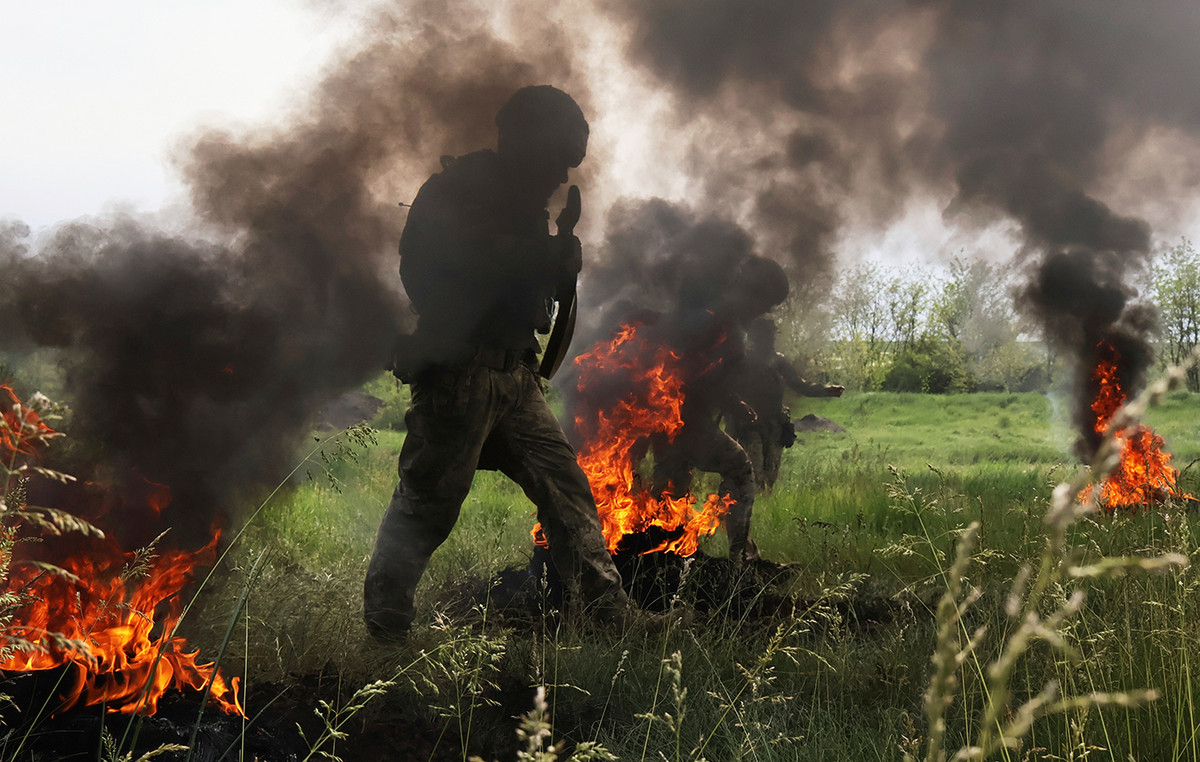Why are you afraid? Is there always an obvious origin behind this emotion? Can a specific fear hide something else? And, above all: why do we sometimes “like” being afraid and do things that push us to feel it? The psychologist, psychotherapist and author of the podcast talks about all this TV Therapy Alessia Romanazzi to the titled event Halloween Show – The Sound of Fearorganized by Lidl Italia on Thursday 19 October at 6.30 pm at Cinema of Milan, in via Seneca 6. Objective: to address the topic of fear and its origins together with some experts, analyzing its function in our daily lives and how it can be exorcised, also through masks and disguises, as well as cinema, TV series and music.
The psychotherapist Romanazzi herself spoke to us in advance about the nature of fear, the function it has in our lives and its possible “advantages”.
Doctor, where does the emotion of fear come from?
«Fear is innate, written in our genetics and similarly to joy, sadness, anger and disgust it is precisely one of the basic emotions with which we come into the world, innate and universal, the same in all cultures. Each of them also has an evolutionary function, linked to survival and fear is what allows us to avoid dangers and therefore not risk our lives.”
Why do we sometimes “look for it”, what does it produce on a psychological level?
«It happens for various reasons to feel “attracted” by fear. One could be wanting to test yourself a bit and experiment with what your resources are: “I feel fear and I feel that my resources work because I am able to face that situation, or, more simply, I am able to tolerate that fear”. there are cases, then, in which people throw themselves almost without limits into scary situations to feel alive, because the moment you feel fear, adrenaline is produced, your attention centers are activated, you feel “very alive” on a physical level Still other cases are those of horror films, paradoxically used to “calm us down”. Through the screen, in fact, we experience fearful situations that are less strong than real ones and this has a somewhat cathartic function, it allows us to experience fear without actually being in danger.”
Are there moments of growth in which the attraction for horror content, for example, is stronger?
«It can happen in adolescence, a phase of life in which the motivations illustrated above are maximized. Adolescents are in a transition phase between becoming autonomous and still being dependent on their family, so they experience having limits, which is often not a real challenge, but simply wanting to feel that limit. In doing so, they put themselves to the test, they experience the fact that they have resources that guarantee them that they can get by. The adolescence phase is also the one in which fear is perhaps felt most strongly, also because it is the one in which one thinks that one does not have all the resources to be able to face it, one is not sure of being able to get by on one’s own.”
Can the perception of fear change with age?
«It changes above all depending on life experiences. For example, when you become a parent. In this case, it is above all women who say that they have a slightly higher fear, not only for their children but also for their own safety; they are much more careful and become much more cautious about some dangers, because they have someone else’s responsibility. In this sense, therefore, it certainly changes. It must be said that as we age, life already sets limits for us and even in this phase the fear is probably felt differently, more strongly than in adolescents because we perceive we have a little less time. or perhaps because the body reacts a little less to certain signals with age. Even in this case, however, there are those who face fear on the contrary with more courage, they say they have an entire life behind them, nothing to lose. The case of that 103 year old lady who jumped with a parachute comes to mind! This probably also tells us a lot about the possibility of being “bigger than fear”.
Has the perception we have today of what is scary or even the very relationship with this emotion changed?
«The object that triggers fear in us can change but not the underlying reason, which is always to ensure survival. A survival as peaceful and without suffering as possible… During the pandemic and post-pandemic period, for example, there was an increase in fear of diseases, widespread hypochondria. Now, however, with the incisive use of artificial intelligence, many people appear scared, they are starting to wonder if it could be dangerous in some way.”
So what are the new, great contemporary fears?
«Many are those mentioned, such as the anxiety of getting sick and the fears towards a certain type of technology, but above all in certain age groups today there is the fear of not being up to par. In fact, currently we perceive many types of anxiety, a sense of inadequacy, not feeling up to a certain performance and the most worrying thing is that it already emerges in nursery school children. a recurring fear that cuts across different cultural and age levels. There are many people who go to therapy for this performance anxiety at the highest levels regarding everything: work, sport, school, relationships, and which can manifest itself with panic attacks, stomach ache, in some cases the relationship with food .
The thing to consider is that on the one hand there are our needs, that is, being free to play if we are talking about children or having free time to dedicate to ourselves if we are talking about adults, on the other hand there are duties. The moment duties become preponderant over needs, anxiety or fear begins to arise. In this, I believe that the pandemic has also helped by bringing anxiety and fear to light, because it has pushed us to consider the importance of listening to needs, of defending free time and private life.”
How do you fight fear?
«In reality, the moment we go to fight it, fear screams louder, because it needs to make itself heard, to show what the danger is. So the best thing to do, really, is to listen and try to understand why she lashed out like this. It should always be specified that fear is a physiological reaction and the point is not to no longer be afraid in life; the point is to ensure that that fear does not break into our daily lives and prevent us from living a peaceful life. If the level of fear is no longer “normal”, it may make sense to start a course of therapy and perhaps intervene immediately with some breathing, focusing on oneself to listen to the body and what it is telling us in that precise moment ».
Source: Vanity Fair
I’m Susan Karen, a professional writer and editor at World Stock Market. I specialize in Entertainment news, writing stories that keep readers informed on all the latest developments in the industry. With over five years of experience in creating engaging content and copywriting for various media outlets, I have grown to become an invaluable asset to any team.







